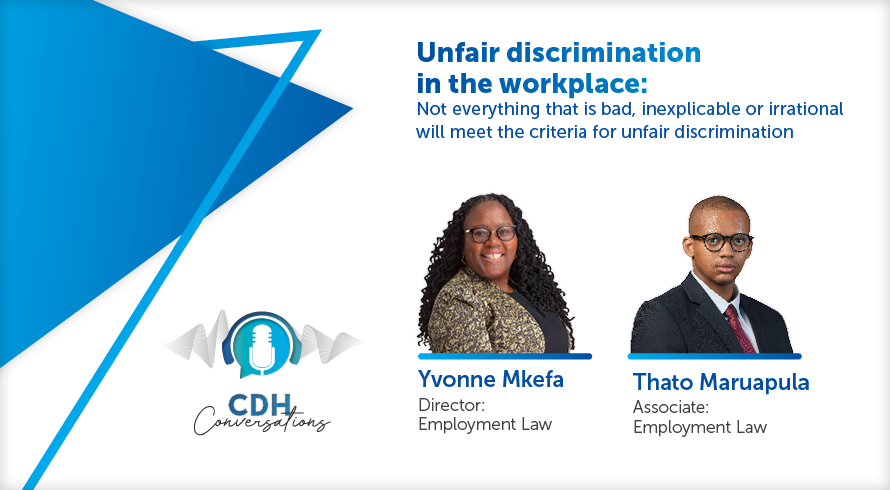How ‘appealing’ is an automatic right of appeal to the next highest court
At a glance
- The court in City of Tshwane Metropolitan Municipality v Vresthena (Pty) Ltd and Others (1124/2022) [2023] ZASCA 104 (22 June 2023) has recently provided some clarity on the interpretation of the “next highest court” mentioned in section 18(4) of the Superior Courts Act 10 of 2013 (Act).
- In this matter, the municipality asserted that the phrase “next highest court” should be interpreted in a less restrictive manner, to include more than one court of appeal. It argued that if it were interpreted more restrictively, injustices would occur, and that multiple appeals are necessary to ensure fairness.
- The court found that the provision in plain language states that a party who is aggrieved has an automatic right of appeal to the “next highest court” and that the use of the words “an” and “court” implies a singular meaning, indicating a restriction on further appeals.
The court in City of Tshwane Metropolitan Municipality v Vresthena (Pty) Ltd and Others (1124/2022) [2023] ZASCA 104 (22 June 2023) has recently provided us with some clarity on the interpretation of the “next highest court” mentioned in section 18(4) of the Superior Courts Act 10 of 2013 (Act), applicable to automatic appeals. This is a welcome clarification, as the last court decision concerning this subject, in Ntlemeza v Helen Suzman Foundation [2017] ZASCA 93, held that the meaning of the term “next highest court” was not entirely clear.
The “next highest court” in terms of legislation
Prior to the Act, the common law practice in our courts was that the execution of a judgment was automatically suspended upon an appeal. Pending the appeal, the result was that the judgment could not be carried out and no effect could be given thereto, except with the leave of the court which granted the judgment.
Now, section 18 of the Act provides for the suspension of a decision pending an appeal.
Section 18(1) to (3) of the Act generally suspends the operation and execution of a decision that is the subject of an application for leave to appeal or of an appeal, pending the decision of the application or appeal. However, this does not apply to interlocutory orders that do not have the effect of a final judgment. In these cases, the operation and execution of the decision is not suspended unless the court orders otherwise. A court may only order otherwise if the party who applied to the court to order otherwise proves, on a balance of probabilities, that he or she will suffer irreparable harm if the court does not so order and that the other party will not suffer irreparable harm if the court so orders.
Section 18(4) then states that if the court orders otherwise:
- the court must immediately record its reasons for doing so;
- the aggrieved party has an automatic right of appeal to the next highest court;
- the court hearing such an appeal must deal with it as a matter of extreme urgency; and
- the order will be automatically suspended, pending the outcome of the appeal.
Section 18(4)(ii) of the Act thus provides for an automatic right of appeal to the next highest court against a section 18(3) order. It is thus important that the term “next highest court” be clear, and that the uncertainty as per the judgment in Ntlemeza be clarified.
Summary of the facts
The first respondent, Vresthena Proprietary Limited (Vresthena), owns six units in the Zambesi Retail Park shopping centre, whereby various lessees all share a single electricity point, which is provided by the appellant, the City of Tshwane Metropolitan Municipality (Municipality). After the tenants and occupiers failed to pay for their electricity and other services used, the Municipality issued disconnection notices. Vresthena filed an urgent application requesting the court to compel the Municipality to accept and review its application for a separate electricity connection for the tenants, and sought an order to restore its electricity and water supply.
The Gauteng Division of the High Court in Pretoria (the court a quo) granted an interim order on an urgent basis, ordering the Municipality to restore electricity and water supply to the property that it turned off, within 14 days of the order. The Municipality thereafter delivered an application for leave to appeal. Vresthena then sought a declaratory order in terms of section 18(3), stating that the order issued by the court a quo should not be suspended while the Municipality’s application for leave to appeal was being considered. The court a quo granted the Municipality leave to appeal the judgment, and ordered that the order to restore the electricity and water supply be put into effect and carried out while the appeal decision was pending.
The Municipality proceeded to exercise its automatic right of appeal under section 18(4) by filing an appeal to the full bench of the High Court against the execution order. The High Court rejected the section 18(4) appeal and issued an order allowing the main order to be implemented while the appeal decision was pending.
The legal question considers whether section18(4)(ii) of the Act allows for a second automatic right to appeal to the “next highest court” under section 18(4), against an order granted under section 18(3) of the Act, with further appeals being possible.
The Municipality asserted that the phrase “next highest court” in section 18(4) of the Act should be interpreted in a less restrictive manner, to include more than one court of appeal. It argued that if it were interpreted more restrictively, injustices would occur, and that multiple appeals are necessary to ensure fairness.
Vresthena, on the other hand, contended that section 18(4) allows for only one appeal to the court immediately above the lower court.
The court’s interpretation of the “next highest court”
The court agreed with the ruling in Ntlemeza that only one appeal to the next highest court is permissible and held that that section 18(4) of the Act specifically allows for a single automatic right of appeal, indicating that multiple appeals are not permitted under this section.
The court emphasised that words in legislation must be understood in their normal sense, otherwise it would lead to an “absurd result”. The court further elaborated on this and held that statutes should be interpreted purposively, properly contextualised and construed in line with the Constitution.
The court continued by explaining that the language of section 18(4)(ii) should be interpreted in its normal sense, and emphasised the well-known ruling of Natal Joint Municipal Pension Fund v Endumeni Municipality 2012 4 SA 593 (SCA), where it was held that “the inevitable point of departure is the language of the provision itself”. The court found that the provision in plain language states that a party who is aggrieved has an automatic right of appeal to the “next highest court” and that the use of the words “an” and “court” implies a singular meaning, indicating a restriction on further appeals. The court indicated that when considering the language, context, and purpose of the provision, the clear wording did not support a broader interpretation to sustain the Municipality’s interpretation.
Court ruling
The court stated that section 18(4)(ii) changes the general appeal process, as such orders (interlocutory in nature) are generally not appealable and leave to appeal must first be obtained before an appeal can be lodged. Section 18(4) establishes a mechanism for a single appeal that will be concluded in an expedited process, as evidenced by the absence of provisions for appealing the decision of the next highest court. In essence, the decision made by the “next highest court” in the appeal process is final and cannot be appealed any further.
The court ultimately agreed with Vresthena and held that the application delivered by the Municipality was irregular and void, and that no proper appeal was served. This judgment makes it clear that an appellant does not have a second right to an automatic appeal to approach the next highest court in terms of section 18(4) where the full court has already heard an appeal.
The information and material published on this website is provided for general purposes only and does not constitute legal advice. We make every effort to ensure that the content is updated regularly and to offer the most current and accurate information. Please consult one of our lawyers on any specific legal problem or matter. We accept no responsibility for any loss or damage, whether direct or consequential, which may arise from reliance on the information contained in these pages. Please refer to our full terms and conditions. Copyright © 2026 Cliffe Dekker Hofmeyr. All rights reserved. For permission to reproduce an article or publication, please contact us cliffedekkerhofmeyr@cdhlegal.com.
Subscribe
We support our clients’ strategic and operational needs by offering innovative, integrated and high quality thought leadership. To stay up to date on the latest legal developments that may potentially impact your business, subscribe to our alerts, seminar and webinar invitations.
Subscribe




